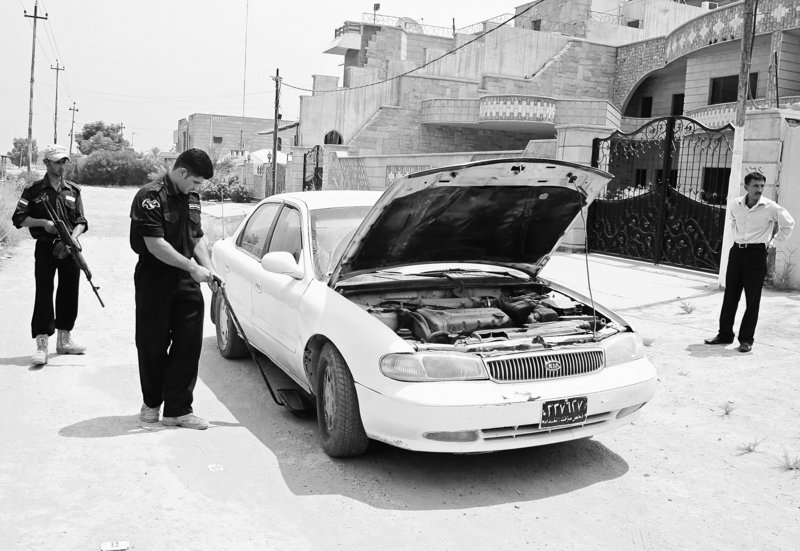BAGHDAD – Al-Qaida in Iraq has begun offering cash to lure back former Sunni allies angry over the government’s failure to give them jobs and pay their salaries on time, according to Sunni tribesmen and Iraqi officials.
The recruitment drive adds to worries that the terror network is attempting a comeback after the deaths of its two top leaders in April and is taking advantage of a summer of uncertainty. The political stalemate in Baghdad is entering its sixth month after inconclusive elections, just as the U.S. military is rapidly drawing down its forces.
Al-Qaida’s strategy is to provoke the Shiite majority into launching revenge attacks – a development that could re-ignite open warfare, split the Iraqi security forces along sectarian lines and cement al-Qaida’s leadership role among Sunnis.
But if the extremists are unable to win back their former Sunni allies, it would be difficult for them to rebound as a significant threat — although al-Qaida could continue to be a deadly nuisance for years to come.
Al-Qaida’s overtures in recent weeks are notable because its militants have killed hundreds of former allies over the past two years, setting off blood vendettas between the Sunni extremist group and others in the Iraqi Sunni community. Many former insurgents also disliked al-Qaida’s imposition of a strict interpretation of Islam in areas under its control.
But tribesmen said the need for cash to feed their families is pushing some lower-ranking former al-Qaida in Iraq members to rejoin the terror group — and that al-Qaida’s presence is growing in Anbar province west of the capital.
“The government must help us counter the resurrection of al-Qaida in Anbar,” warned Mahmoud Shaker in the province’s Habbaniyah district.
Others warned that the recruitment could help al-Qaida gain ground elsewhere in Iraq.
“I expect that if salaries continue to be paid late, Sahwa members will themselves seek to rejoin al-Qaida,” said Rafia Adel, referring to the Sunni tribesmen who turned against al-Qaida and sided with the U.S. military and the government. Adel is a senior Sahwa leader from the city of Beiji in Salaheddin province.
Al-Qaida is also exploiting continuing resentment by the Sunnis over their second-class status in Iraq since the fall of Saddam Hussein — particularly in Baghdad, which had been a Sunni-dominated city for 1,000 years.
The 2006 and 2007 revolt by Sunni tribesmen against al-Qaida dramatically changed the course of the war. Former insurgents were organized into Awakening Councils, or Sahwa, to help U.S. and Iraqi troops fight al-Qaida. The U.S. military initially supervised and paid the salaries of the Sahwa fighters, whose numbers peaked to about 100,000 in 2008. The Iraqi government took over the Sahwa from the Americans last year.
Copy the Story Link
Send questions/comments to the editors.



Success. Please wait for the page to reload. If the page does not reload within 5 seconds, please refresh the page.
Enter your email and password to access comments.
Hi, to comment on stories you must . This profile is in addition to your subscription and website login.
Already have a commenting profile? .
Invalid username/password.
Please check your email to confirm and complete your registration.
Only subscribers are eligible to post comments. Please subscribe or login first for digital access. Here’s why.
Use the form below to reset your password. When you've submitted your account email, we will send an email with a reset code.